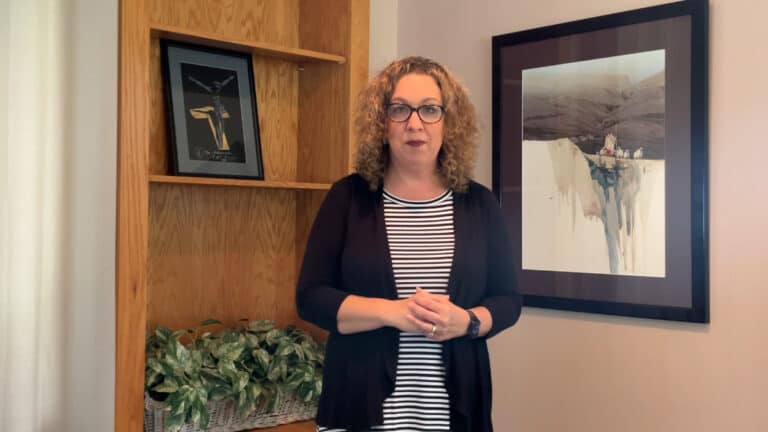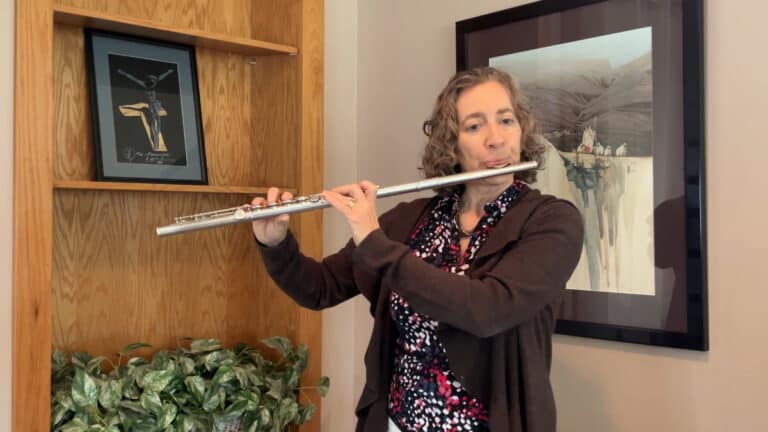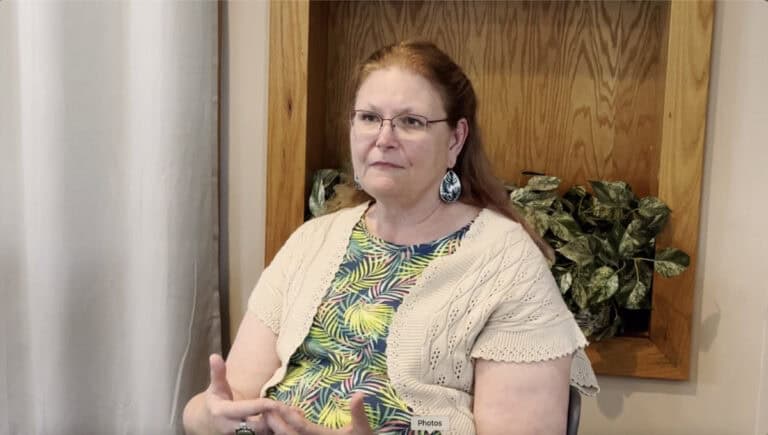Many Catholic communities face limited resources, including disproportionately small budgets, limited staff, and only a small pool of volunteers and professionals to support the parish liturgies. That’s true of parish communities across the United States, and it’s also true for military music ministry across the US and around the world.
Military music ministries located stateside and overseas have all the limitations of small parishes and can at times be further restricted by location, federal contracting laws, and military regulations. While there are certainly struggles — including limited availability of volunteer and professional musicians and limited music books and other print materials to support the liturgy — there are also many blessings when serving in military music ministry.
One aspect unique to military music ministry that I have not faced in civilian parish service has to do with the liturgical spaces. All liturgical spaces on a military base must be able to support faith celebrations of all major religious affiliations. Catholic communities share chapel spaces with Muslim, Protestant, Jewish, and other faith communities. All liturgical symbols in the space must be movable or adaptable so that the worship and prayer spaces can be appropriately configured for each community’s needs. It’s like a game of musical chairs, but with musical statues as things are rearranged between services — a game in which the military music minister becomes well versed.
An ecumenical approach to music ministry
Similarly, while most civilian music ministers serve a single faith community, liturgical musicians in military communities may serve multiple faith communities simultaneously or sequentially. It’s a natural adaption that supports the staffing and support requirements of military communities and military chapels. Thus, the musicians take on a chameleon-like quality in adapting their ministries to support the various services, in the same way they adapt the physical space to support the various services. Due to budget constraints and limited resources, it’s not uncommon for multiple faith communities to share both contracted and volunteer musicians, whether ensemble members, choir members, or accompanists. This unique aspect of the military music ministry is a blessing to the individual participants, as well as to the various faith communities.
Like our military chaplains and other support staff, music ministers serving military communities may be located at permanent overseas or stateside bases or be operating out of tents at a deployed forward location. The flexibility and skill demonstrated by these dedicated directors, singers, and accompanists is truly amazing as they strive to honor the traditions and practices of the faith-specific groups during weekly services. In addition, they are often asked to support the greater military and local communities during holiday events such as Thanksgiving and 4th of July or ecumenical faith-based events such as the National Prayer Breakfast. It was through a Thanksgiving celebration many years ago that I first realized the blessings and opportunities inherent from sharing music ministers across different traditions.
At that time, I was the new music director (and youngest member) of the parish music ministry and was directing a vigorous but small Catholic music ministry. We had a local contracted organist plus a guitarist and a flute player. The Protestant community’s choir at that base was also small and used the same organist as the Catholic community. When we combined both choirs for the ecumenical Thanksgiving celebration, that large choir made a very joyful noise. Repertoire that was beyond the capabilities of the individual smaller groups was achievable by the combined music ministries.
The non-Catholic choir members found that some of our Catholic repertoire served as a bridge between the groups, given that our two faith traditions shared many core beliefs and common foundations. The commonality of service to others and love of music struck a chord with all.
Blessings from military music ministry
After that Thanksgiving weekend, I asked the Protestant chaplain and music director to allow me to talk with the Protestant choir members one evening after their rehearsal. Moved by the Holy Spirit, I spoke about the shared musical heritage between the groups and how well we prayed and sang together, and I made them a deal. If some would participate with the Catholic choir at Mass, I and other members of the Catholic choir would join them for their weekly service.
The Sprit so enflamed our hearts that six Protestant members started attending our rehearsal and singing at the Catholic Mass. I kept my part of the bargain and joined them at their rehearsals and weekly liturgy. This started a journey for me that provided multiple opportunities to expand my faith life and prayer opportunities and to deepen my personal understanding of my Catholic faith. Several of the singers from the Protestant choir shared with me their experiences and the many blessings they felt as they came to a deeper understanding of their roles as music ministers. This experience occurred repeatedly for me at many bases in both the US and overseas and has been a source of great joy and satisfaction.
Over the span of my military career, at times I simultaneously served as director of music or accompanist for the Catholic community and the Protestant community and provided coaching for the cantors serving the Catholic, Protestant and Jewish community as prayer leaders. When military music directors support multiple faith communities, close collaboration with the chapel faith leaders (usually the faith-specific Chaplains) ensures we honor specific faith traditions.
A true ecumenical benefit of a ministry that spans multiple communities is the opportunity to share and learn music that can enhance our individual prayer life and community liturgies. When approached with respect for the tenants of the various faith communities, much music can enhance everyone’s appreciation for wonderful melodies and texts. I can recall teaching “I Am the Bread of Life,” composed by Sister Suzanne Toolan, to a Protestant choir and how strongly they and their community embraced the song and the meaning of the song. I can recall the Imam sharing prayers and the Jewish cantors sharing Psalm translations that truly enlightened me and my fellow Catholic music ministers. I am convinced all benefit from these exchanges and expressions of our faith.
It has always been my observation that our worshiping communities — whether located in the heartland of the nation or on a far-distant shore — are bountifully blessed by the efforts of the music ministers. Whether there are many or few serving, the service they provide to the community is manifest. The wisdom of Saint Augustine is frequently invoked via the paraphrase “He who sings prays twice.” This is one of my favorite quotes, and when coupled with the truism that “A leader of liturgical song is a leader of prayer,” you can better comprehend the spirit-filled singers and musicians who choose to serve the sung-prayer leadership needs of not only their own faith tradition, but also the multiple denominations that gather to pray and celebrate each week at military chapels.
Written by JC Cantrell, a retired US Air Force Colonel with 50 years of experience in music ministry, including directing and conducting choirs and ensembles in both civilian parishes and military communities.
Copyright © 2025 Catholic Liturgical Ensemble Formation
Looking for more resources? Search our full online library of CLEF Life resources, or sign up for CLEF Life email updates to receive the latest resource in your inbox once a week.



